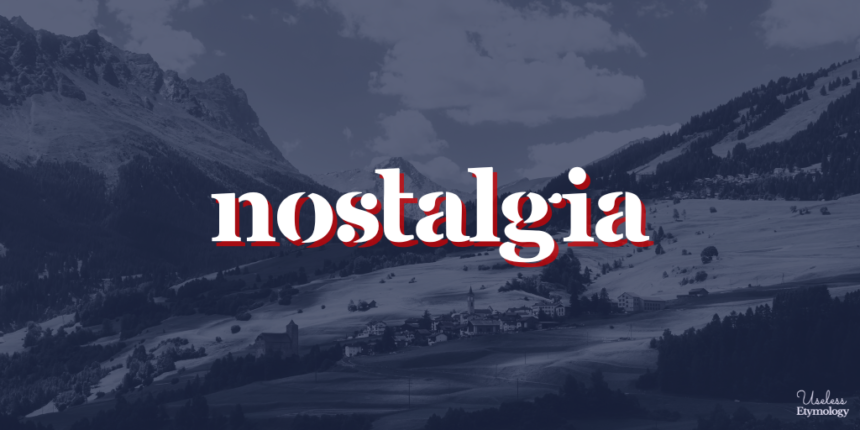The word “nostalgia” first described homesickness and likely PTSD symptoms experienced by Swiss soldiers and mercenaries who fought abroad in the 1700s.
Nostalgia has a surprisingly tragic origin.
In 1688, Swiss medical student Johannes Hofer wrote a dissertation about a condition that was common to Swiss soldiers and mercenaries who were fighting in other parts of Europe. Hofer documented symptoms such as fatigue, anxiety, heart palpitations and even fevers, and noted that when they went back home, they felt better.
He came to the conclusion that their symptoms were caused by being geographically far from home and described their ailment as a pathological condition that had the potential to be fatal. He called the condition heimwehe, meaning “homesickness,” or literally “home-woe.” And, as was often the case at the time, because his medical writings were penned in Latin, he also coined the word nostalgia using Latinized forms of the Greek words nostos and algos, “homecoming” and “grief.”
While homesickness was certainly a factor, these soldiers were also probably suffering from additional trauma-related mental conditions from their wartime experiences as well. (It’s also worth noting that Hofer thought that this condition happened when your essential ethers and vital spirits all went to your brain and sucked them out of the rest of your body—but psychology barely existed, so it is notable in the 1600s that anyone took depression and PTSD symptoms seriously.)
Another interesting element of this coinage is that, initially, the condition called heimwehe or nostalgia was said to be peculiar to the Swiss, to the extent that it was also commonly known as as “the Swiss disease” or mal du Suisse.
But obviously many people endure the same experience, so by the early 1800s, nostalgia was extended to describe the feelings of sailors, slaves, and prisoners—anyone kept away from their home or homeland by force or by circumstance.
Specifically, a medical journal from 1833 said that symptoms of nostalgia arise in people “when they are seized with a longing desire of returning to their home and friends and the scenes their youth ….”
And that “scenes of their youth” notion is why nostalgia began to take on a more time-based connotation: not just homesickness, but an intense longing for one’s past experiences.
It remained primarily a medical diagnosis—documented often during the American Civil War in particular, when this form of mental health condition was respected in medical journals, but often maligned as a sign of weakness by soldiers—until the arts seized upon it in the early 1900s.

The following is from a 1915 collection of poetry by Berton Braley, an early appearance of the term in its more general (and less medical) sense.

And as the word appeared more often in literature and the study of mental health became more nuanced, the word “nostalgia” grew less medical and more romanticized until we arrived at today’s meaning, where it’s not a condition so much as a universal feeling.





